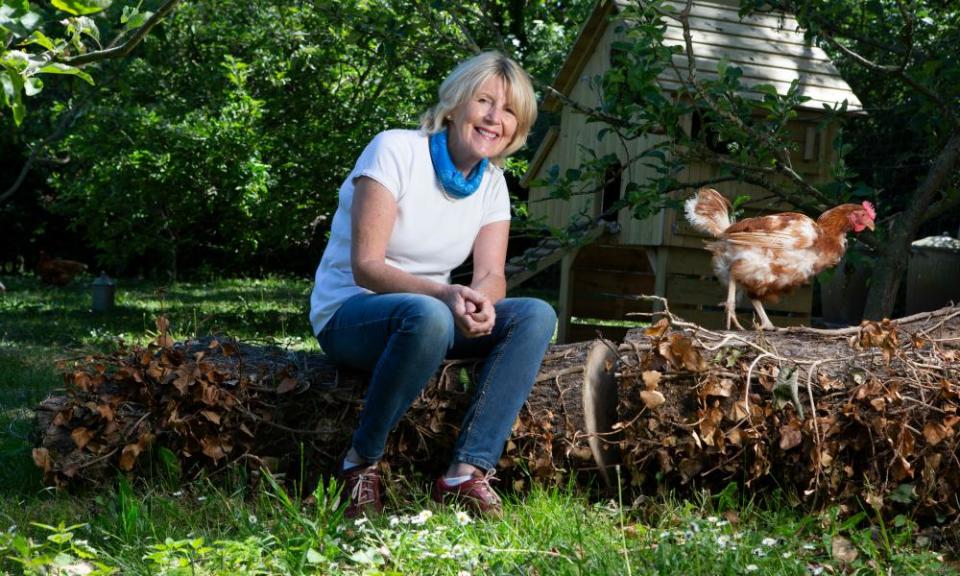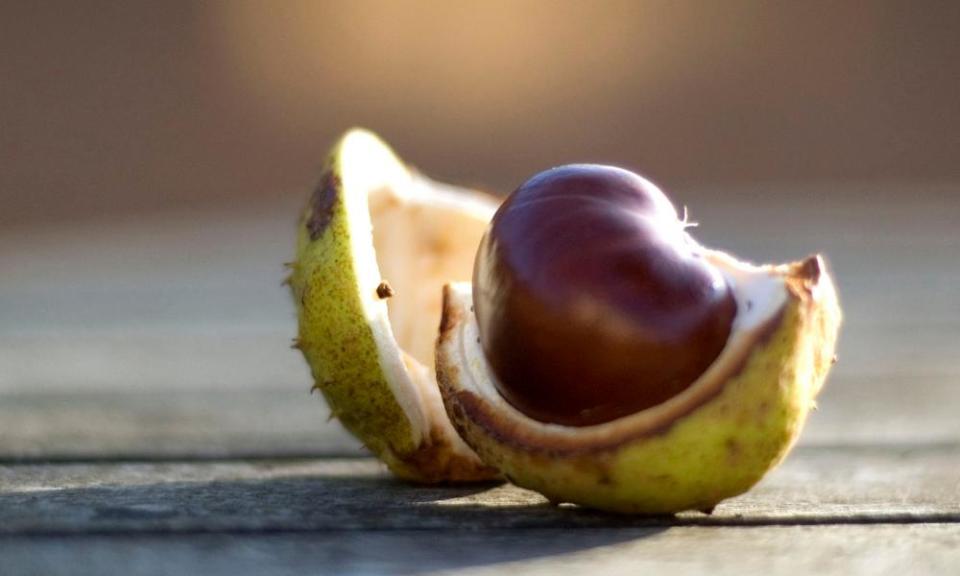The green cleaner: 15 natural ways to spruce up your home – from nettles to rainwater
It was a filthy washing machine that prompted Nancy Birtwhistle to embrace the power of eco-friendly cleaning. “I was nearly at the point where I thought I needed a new washing machine, because it was a disgrace,” she says. “And that’s the sort of culture we’ve become: ‘I’ll replace it.’” Instead, she gave it a thorough clean and switched to homemade detergent. She says her machine no longer gets gunked up from chemical overload.
Birtwhistle, a no-nonsense retired GP practice manager and grandmother of nine, won the fifth series of The Great British Bake Off in 2014, but she has also become known on social media for her green cleaning tips. Once a fan of bleach and strongly perfumed products, she now makes everything herself. “We’ve been brainwashed into thinking that natural products are inferior to synthetic ones. I used to use bicarbonate of soda in the 1970s, but I stopped using it because there were products I thought would do a quicker job, but they’re causing such a lot of damage to the environment.” She has now written a book, Clean & Green: 101 Hints and Tips for a More Eco-friendly Home, which is packed with advice and ingenious tricks. Green cleaning, she says, is “accessible for everybody. I made the point of making it affordable.” Here are a few of her tips to get you started.

Bulk-buy ingredients
Birtwhistle buys her most-used ingredients in bulk – an initial outlay, but money-saving in the long run. Her main ingredients include bicarbonate of soda, “because that’s used a lot”, a big bag of citric acid, a bottle of surgical spirit, sodium carbonate (known as washing soda, which can be a skin and eye irritant) and a bag of sodium percarbonate (known as “oxygen” or “green” bleach; it’s not as toxic as chlorine bleach, though you still have to be careful with it, as you do with all these ingredients, which, while considered acceptable natural cleaning alternatives, aren’t entirely benign. So keep out of the reach of children, wear gloves if needed and follow the safety instructions on the packaging). “And I bought myself a variety pack of essential oils, because I do still like a little bit of perfume in fabric conditioner, or my ironing water.”
Forage for soap
It sounds miraculous, but Birtwhistle swears by ivy as a laundry detergent (about 60g, cut up and put in a muslin bag, then put in the drum). “It excites me so much; my husband thinks I’m crackers. I knew in the depths of my memory something about ivy and saponin [a natural foaming detergent], so I Googled it. Conkers have it as well.” Birtwhistle uses ivy “when I can be bothered to go out and cut some. I’ve got lots of it in the garden.” (Although remember that ivy can be a skin irritant for some people.) In the autumn, she collects conkers and boils them up to create a creamy laundry liquid.
Harvest rainwater
This is what Birtwhistle uses in her iron, rather than buying expensive distilled “ironing water” or using hard tap water, which can fur up an iron with limescale. She takes it from her water butt a litre at a time. “Boil it and, when it’s cold, add two or three drops of lily of the valley essential oil.”
Make an all-purpose cleaner
Birtwhistle’s recipe is 150ml water, 60ml white vinegar and 40ml surgical spirit, with essential oil for fragrance. “I use it pretty much for anything,” she says. “It’s non-streaky and quick-drying. It started off as a kitchen cleaner for worktops, the hob, cupboards, cutting through greasy marks on shelves and things like that. Then I moved it into the bathroom and everywhere else. It’s good for mirrors, glass, inside the car. It’s brilliant for tiles.”
Decrease dry cleaning
The chemicals used at the dry cleaner are notoriously toxic. “When I worked in offices and used to wear suits, I would often send jackets to the cleaner just because the collar was grubby. But all you need is a pad dipped in surgical spirit; it will clean it up without having to use the dry cleaners.”
Clean the oven without harsh chemicals
“Start by softening all the burnt-on bits with steam,” says Birtwhistle. Put a large roasting tin in the bottom of the warm oven and fill it with boiling water, close the door and leave it for 20 minutes. A paste made from bicarbonate of soda and water (add some xanthan gum if you want to make it a bit stickier) can then be painted all around with a pastry brush. Leave for 30 minutes, then remove with a scraper and fine wire wool.
Miracle oven-shelf cleaner
A horrible job – and one for which Birtwhistle used to use harsh chemicals in a big plastic bag. There are two methods, she says. “One is to simply put them out on the lawn overnight. The best results I’ve had is to do it when the grass has just been cut, and cover the shelf with grass clippings as well. It creates a sort of steamy environment and then the next day they just wipe clean.” One of her social media followers from South Africa gave her this tip. However, if you don’t have a garden or grass, “submerge them in washing soda overnight”.
Stained casserole dishes
Birtwhistle says she “lived for years and years” with stains on the inside of her cast iron casseroles. “Then it just took a tablespoon of sodium percarbonate and a kettle of boiling water and it was clean.”
Brightening whites
Yellowing fabrics, such as pillow cases, can be transformed, says Birtwhistle. “Put them in a lemon juice or citric acid solution [3tbsp added to 600ml hot water], with salt, and leave to soak. You need a sunny day. Peg them outside – don’t rinse or wring them – and the sun will bleach them.”
Screen clean
A fine mist made with white vinegar and surgical spirit, diluted with water, makes a good screen cleaner, says Birtwhistle: it removes dirty fingerprints and bacteria from keyboards. The vinegar reduces the static cling, she adds, “so it stops your TV collecting dust”.

Deep-clean the loo
Birtwhistle says citric acid will “dissolve limescale and kill germs. When you move away from bleach, you find all these stains appearing, because all you’ve been doing is bleaching them out, but the limescale is still there. Use citric acid to get rid of that.” She makes her own loo cleaner using 200g citric acid and 150ml water, emulsified with a squirt of eco-friendly washing-up liquid. “The only downside is you need to rinse your nozzle afterwards. Otherwise, it does crystallise there.”
Restore shower screens
Marks on glass screens come from “a combination of soap scum and limescale. Make a spray of citric acid and water and it comes off in a jiffy. Make sure you rinse it off, because it dries sticky.”
Banish mould
This will work on mouldy spots on grout, sealant and fridge seals, says Birtwhistle. “Salt and vinegar will kill mould. I keep white vinegar in a spray bottle, so you can get it into awkward places like that. I squirt it, then dip an old toothbrush into ordinary table salt and rub away at it. Once you’ve done that, you could then use a spray of sodium percarbonate if there are any stained bits.”

Remove scuff marks
After a run-in with a rubber parking bollard (“These things happen”), Birtwhistle dabbed some bicarbonate of soda on the mark with a damp cloth and it was as if it had never happened. It also works on walls, skirting boards and appliances.
Home-brew pesticide
Last summer, Birtwhistle had two different sprays to keep bugs at bay. She made one from nettles (60g boiled in 600ml water) and another using rhubarb leaves (500g of leaves in a litre of water). Both also contained clove bud oil, thought to deter insects. “The oxalic acid in rhubarb is a mild poison, so I didn’t use that on my veg,” she says. “I used the nettle spray there and I used the rhubarb spray on non-edible plants.” Both were effective, she says. “I was delighted.”
Clean & Green by Nancy Birtwhistle is published on 21 January by Pan Macmillan (£12.99). To order a copy for £10.39, go to guardianbookshop.com. Delivery charges may apply

 Yahoo Finance
Yahoo Finance 